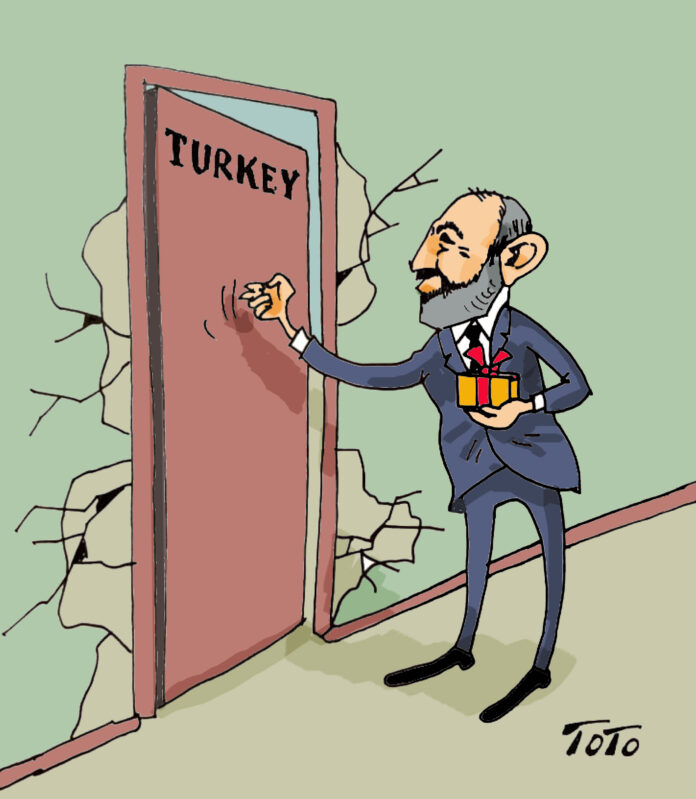Another hot topic was tossed into the already superheated public debate in Armenia amid the Armenia-Russia standoff, blockaded Lachin corridor and the stalled Armenia-Azerbaijan peace treaty negotiations, among other issues.
Indeed, Prime Minister Nikol Pashinyan’s administration’s initiative to send rescuers and aid to Turkey rocked the news and social media in Armenia. Most opposition voices criticized the initiative, while the government sources and regime-friendly news outlets defended the move, on several grounds. The debate continues to rage in Armenia as worldwide attention is focused on Turkey and Syria, whence traumatic and tragic images of rescue work are being beamed.
Armenia dispatched a rescue team of 28 to Turkey, accompanied with five truckloads of food, water and medical supplies. Armenia also sent a rescue team of 29 to Syria, while Azerbaijan and Georgia have refused to help Syrians. For the first time in 33 years, Turkey opened the land border at Margara bridge to receive the aid package from Armenia destined to Adiyaman province, one of the hardest hit by the devastating quake of February 6, the epicenter of which was in Gaziantep.
“I will always remember the generous aid sent by the people of Armenia to help alleviate the suffering of our people in the earthquake stricken region in Turkey,” said Ambassador Serdar Kiliç, the lead negotiator for restarting diplomatic relations with Armenia, to his counterpart, Ruben Rubinyan.
Prime Minister Pashinyan called President Recep Tayyip Erdogan to express his condolences, to which Mr. Erdogan replied, “The Turkish government highly values Armenia’s support, emphasizing that step also from the point of view of further deepening the dialog between the two countries.”
Of course, these exchanges do not extend beyond the limits of protocol. However, an optimistic message is emerging from the Armenian side in an effort to justify the initiative. Thus, explains Foreign Minister Ararat Mirzoyan, “We ourselves saw what disastrous consequences an earthquake can have and we were not alone at that time. … There is a dialogue, as you know, about the opening of the borders and the establishment of diplomatic relations.”










